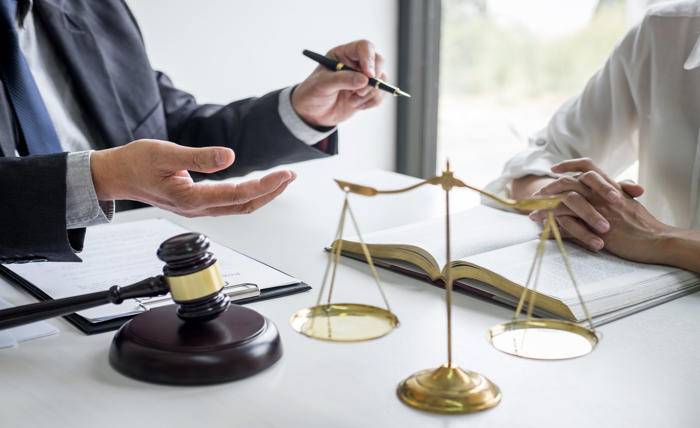Facing proceedings linked to license control can feel overwhelming without clear direction. Many individuals focus only on the courtroom without realizing that administrative hearings carry equal weight. Decisions taken by authorities can influence daily life long after the court judgment. That is why understanding both systems matters when planning for a strong defense. Skilled support helps align these processes while reducing risks of confusion or mistakes. With careful preparation and consistent guidance, people can protect their rights and regain clarity. A strategic approach means balancing administrative requirements with legal planning to build a better outcome.
Complex Hearings
DMV hearings are not simple steps but formal proceedings with strict rules and timelines. Here, evidence is reviewed, and decisions may directly affect future privileges. This is where choosing the right guidance makes all the difference. An experienced dmv hearing attorney can explain each stage, prepare paperwork, and handle cross-examination. The professional ensures your voice is heard while presenting evidence that supports your side clearly. Missing such representation may leave people vulnerable to technical details they cannot manage alone. Lawyers not only fight for favorable rulings but also minimize long-term consequences that may arise.
Key Challenges
Many difficulties surface when individuals face administrative cases without proper knowledge.
- Strict deadlines for filing appeals can result in missed opportunities for fair review.
- Technical documents require accuracy; otherwise, they may be dismissed by reviewing officers.
- Hearing officers often apply complex standards, which can confuse individuals without preparation.
- Testimony from experts may carry weight, making unrepresented voices less effective in hearings.
- Conflicting statements across legal cases can weaken credibility during administrative sessions.
- Lack of strategic advice might prolong restrictions even after completing related obligations.
Legal Guidance
Choosing legal support for DMV cases is not simply about representation; it is about planning. Skilled professionals help clients understand how administrative rulings connect with courtroom results. They review all paperwork, prepare defense strategies, and ensure consistent arguments across hearings. Having guidance also reduces stress by clarifying processes and anticipating what might happen next. Attorneys take a structured approach that covers both immediate defense and long-term protection. Their involvement builds confidence while addressing critical points of law that most people overlook. A well-prepared lawyer balances fairness and strategy to create stronger outcomes at every stage.
Evidence Role
Administrative hearings depend heavily on evidence presented during review sessions. Without proper handling of proof, even valid claims may be disregarded by decision makers.
- Written statements from witnesses often provide independent confirmation of relevant events.
- Test results may be used, yet require a clear explanation from qualified experts in hearings.
- Official records need to be collected early since missing documents can delay the process.
- Photographs or video evidence provide visual support that can strengthen overall credibility.
- Consistent timelines built through logs highlight patterns that may otherwise be ignored.
- Clear explanations of documents prevent misinterpretation, which could weaken the individual’s case.
Rights Protection
Safeguarding personal rights is one of the most important goals when facing administrative reviews. A lawyer ensures individuals understand their choices and prevents unnecessary waivers of rights. Legal professionals also challenge improper evidence, secure fair hearings, and demand unbiased judgment. They prevent situations where rules are applied unfairly or authority oversteps its role. This active defense helps create a balance between individual rights and administrative powers. Knowing someone is protecting your rights reduces stress and strengthens confidence during hearings. By securing fairness throughout, legal counsel turns a complex process into a manageable pathway forward.
Court Relations
Many forget that administrative outcomes can directly influence courtroom rulings and vice versa. Decisions in one arena often echo in the other, which complicates the process further. A lawyer understands this relationship and creates strategies that align both results. Without such insight, individuals risk contradictory outcomes that harm their future stability.
- Court rulings may increase penalties when administrative decisions show repeated violations.
- Administrative suspensions can limit legal defenses by restricting available arguments in trials.
- Inconsistent testimony creates doubts that may damage credibility across both hearings.
- Lawyers coordinate documents to ensure consistent facts are presented in both forums.
- Coordinated defense avoids unnecessary duplication of effort, saving time and resources.
- Clear alignment ensures long-term relief rather than short-lived temporary results.
Practical Benefits
The role of legal counsel extends beyond technical arguments to practical support. Skilled professionals help reduce stress while guiding everyday challenges during proceedings.
- Preparing clear checklists for hearings ensures no important evidence is forgotten or overlooked.
- Offering direct communication with authorities prevents misunderstandings that might cause delays.
- Explaining rules in simple terms helps clients remain calm during difficult situations.
- Reviewing long-term consequences allows individuals to plan future steps with confidence.
- Ensuring deadlines are met avoids dismissals or automatic penalties without fair review.
- Creating strategies suited to each case builds stronger chances for a favorable resolution.
Lasting Security
Real security comes from preparation, strong advocacy, and ongoing guidance that extends past hearings. Administrative decisions shape futures in ways many do not expect, from professional impact to personal limitations. Having trusted representation ensures mistakes are corrected, rules are followed, and fairness is upheld throughout. Support does not end with hearings; it continues by providing advice for future compliance. With steady guidance, people regain control of their lives and protect their long-term stability. A dmv hearing attorney plays a central role in connecting these elements, ensuring smoother paths ahead. True relief is found when individuals combine protective rights, strategic defense, and reliable advocacy.

